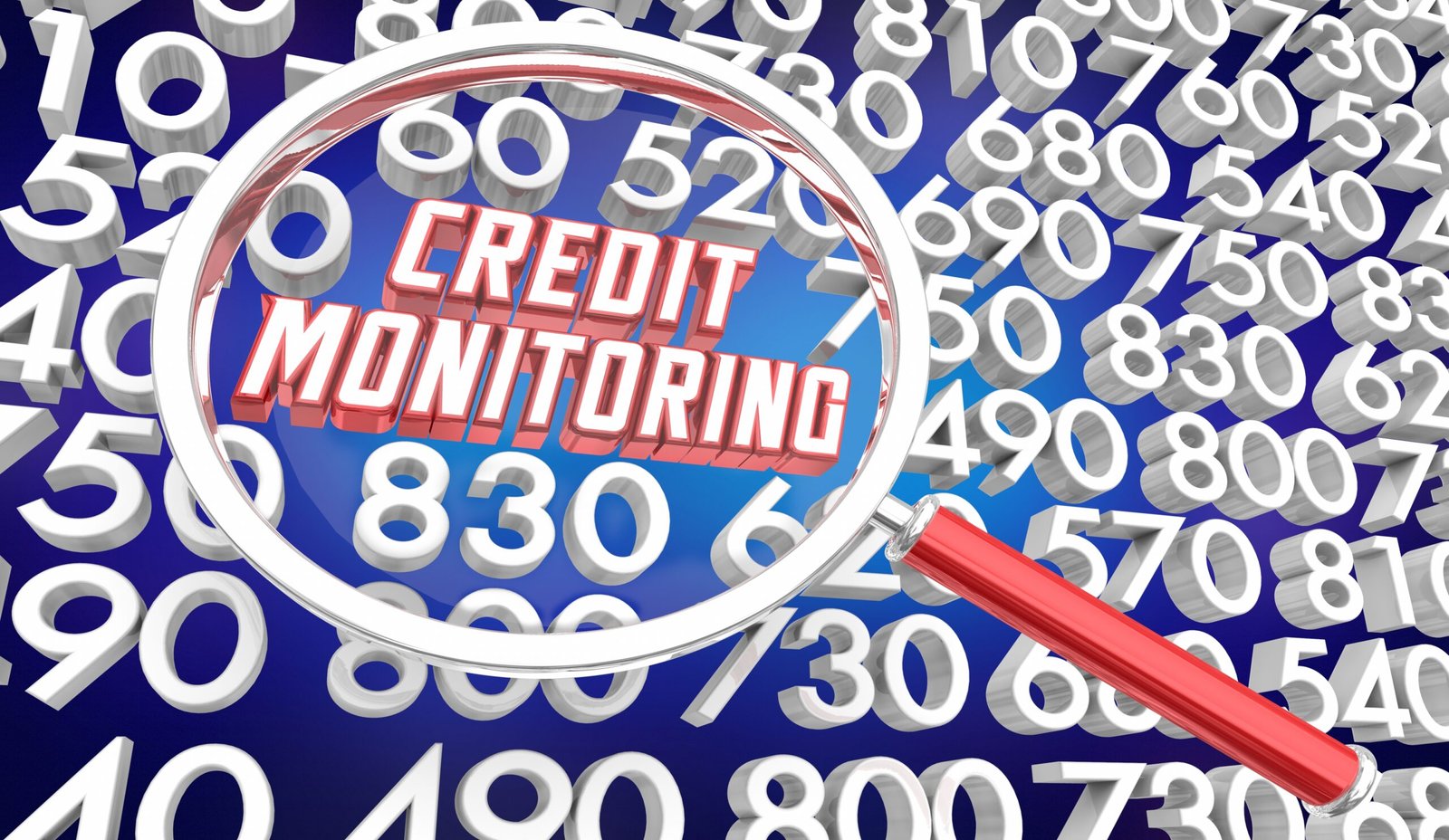Welcome to the beginner’s guide to credit monitoring! It’s time to learn what it takes to have great credit. In this article, we explain what credit monitoring is and how it can either be done manually or by purchasing a credit monitoring service.
What Is Credit Monitoring?
Credit monitoring is regularly checking credit activity for important changes made to your credit report and score. You can do it yourself or leave it to professionals by purchasing professional credit monitoring services.
Either way, successful credit monitoring should spot inaccuracies, fraudulent accounts, and identity theft. Professional companies automate this process by providing sophisticated monitoring programs that scan for irregular activity in your accounts. Most services will notify you immediately if they catch any red flags.
Why Should You Monitor Your Credit?
Not only will monitoring your credit help you evade hackers and theft, but it’ll also ensure your credit score is ready for use whenever you need it. Having a good credit score can be used to:
- Qualify for new home or auto loans
- Qualify for an apartment with a low downpayment
- Get better rates on car or home insurance
- Open credit cards with lower interest rates
- Unlock higher credit card limits
- Get approved for home utility services such as internet or home alarms
- Get approved for cell phones without leaving a deposit
It’s important to monitor your credit frequently because you could have a hard inquiry hit your account that could drastically lower your score. If this happens and you don’t realize it, it could be difficult to raise your score quickly. By making sure your credit is in great shape at all times, you know it’ll be ready when you need it.
Credit Monitoring for Identity Theft Protection
We’d all like to think identity theft won’t happen to us, but over 15 million Americans are victimized by identity theft every year.
Even illegal purchases made using stolen credit card numbers can be constituted as a form of identity theft. Thieves can also file fraudulent Social Security or Medicare claims using your information.
Credit monitoring through a professional agency offers identity theft protection as an additional service. Agencies typically include insurance protection to safeguard against unapproved credit card purchases or stolen funds. Identity theft insurance helps monitor your credit files to send you notifications about suspicious activity, such as new accounts opened in your name, or credit inquiries received. This service helps you react quickly to save yourself from any fraudulent activity before it ruins your credit score and history. Good credit monitoring services include ID theft monitoring as an added service. Learn more about the best credit monitoring services.
Some common benefits offered by credit monitoring agencies include:
- Social media scanning
- Change in address alerts
- File-sharing network
- Sex offender registry reports
- Medical identity monitoring
- Restoration services
Many plans also provide access to private investigators or customer service agents to assist you in recovering your identity if it’s stolen. An identity theft protection service is essential for anyone who shops, socializes or does business online.
How Often Should You Monitor Your Credit?
Many resources online will suggest checking your credit score at least once a year. Here at HelloGenius, we recommend you check your credit score at least once a month to ensure you are staying on top of your credit. Monitoring your credit frequently will help you take preventative action toward protecting your credit history, helping you avoid unwanted surprises that can damage your credit.
What to Look For When Monitoring Your Credit
When manually monitoring your credit without the help of a service, it’s recommended that you check your credit score using the three national credit monitoring agencies: TransUnion, Experian, and Equifax.
When you look at your credit report, you should look for the following:
- Changes to personal information (Name, address, etc.)
- Unauthorized Inquiries
Hard Inquiries: When a potential lender checks your credit. This negatively impacts your score.
Soft Inquiries: When you check your own credit or through pre-approval screenings performed by lenders. These do not negatively impact your score.
If this is overwhelming, we recommend hiring a credit monitoring service that will do all of it for you plus much more. Check out our recommendations and reviews to discover which company might be best for your situation.
Three-Bureau Credit Monitoring
As we mentioned, it’s important to check your credit against the three main credit bureaus, also known as three-bureau credit monitoring, that includes TransUnion, Experian, and Equifax. It’s also important to note that each agency scans and reports credit differently. If you monitor your credit using only one bureau, there’s a chance your future lender relies on a different bureau to make its lending decisions, making it important to check all three.
The bureaus also use varying scoring systems. The two standard scoring systems used across the three credit bureaus are VantageScore and FICOⓇ. It’s important to be aware of your credit across both scoring systems to preserve and improve your score.
How Much Does Credit Monitoring Cost?
Basic credit monitoring services can be obtained for free once per year by going to AnnualCreditReport.com. To review your credit reports more than once per year, you’ll need to pay for credit monitoring services, which is what we strongly recommend if you are serious about staying on top of your credit.
Depending on what you need and how many people you’re monitoring, expect to pay $8.99 to $34.95 a month for credit monitoring services.
In Closing
As a beginner, credit monitoring can be overwhelming. That’s why we’ve already done a lot of the work for you. Check out our review of the best credit monitoring companies and then determine which company is best for your particular situation. Whether you’re looking into credit monitoring because you’d like to do it yourself or hire a company, it is an essential part of maintaining a healthy credit score.

About Monica Bulnes
Monica Bulnes is a business writer based out of San Diego, California. Monica received her business education from the top #7 best business school in the country, Rutgers University. She has worked in numerous marketing departments, including major multinational conglomerate, Panasonic. Her passion for personal finance and financial literacy is an extension of her passion for health and wellness. Monica truly believes that financial health is just as important as physical and mental health, considering the important role money plays in each and every person’s life. In her free time, you’ll find Monica inspiring the world through Instagram, writing in her journal, or sketching palm trees at the beach. To learn more about Monica and her writing, find her at www.writingbymonica.com.










